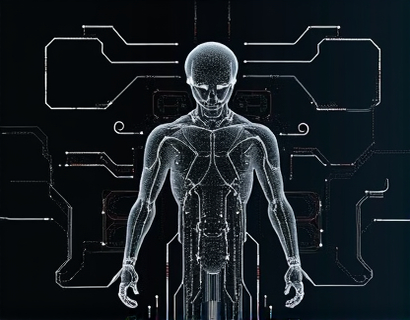AI Accreditation Innovations: Transforming Skill Validation and Career Advancement in the Digital Age
The digital age has ushered in a new era of rapid technological advancement, particularly in the field of artificial intelligence (AI). As AI continues to permeate various industries, the demand for skilled professionals who can navigate and contribute to this evolving landscape has surged. Traditional methods of skill validation, such as degrees and general certifications, often fall short in demonstrating specific AI-related competencies. This has led to the emergence of innovative AI accreditation platforms that offer specialized credentials, validating skills and knowledge through completed tasks and educational milestones. These platforms are revolutionizing how professionals enhance their credibility and advance their careers in the tech industry.
The need for specialized AI credentials is driven by the complexity and specialization of AI technologies. Unlike general IT or computer science certifications, AI credentials focus on specific areas such as machine learning, natural language processing, robotics, and data science. This specialization ensures that individuals not only possess a broad understanding of technology but also have hands-on experience and expertise in niche AI domains. By completing tasks and achieving educational milestones, professionals can earn credentials that are directly aligned with industry needs, making them more attractive to employers.
One of the key innovations in AI accreditation is the shift from traditional classroom-based learning to experiential learning through task-based certification. This approach allows learners to demonstrate their skills in real-world scenarios, providing a more accurate assessment of their capabilities. Task-based certifications are designed to be modular, meaning learners can acquire credentials incrementally as they complete specific tasks or projects. This flexibility caters to the diverse learning styles and schedules of professionals, enabling them to upskill or reskill at their own pace.
The process of earning AI credentials through task completion typically involves a series of challenges or projects that simulate real-world problems. These tasks are curated by industry experts to ensure relevance and rigor. Upon successful completion, learners receive a digital certificate that is verifiable and portable. This certificate serves as proof of their skills and can be easily shared on professional profiles, resumes, and LinkedIn profiles. The verifiability of these credentials adds a layer of trust and credibility, as employers can confidently assess the holder's abilities.
Moreover, AI accreditation platforms often incorporate continuous learning and professional development components. As AI technologies evolve rapidly, it is crucial for professionals to stay updated with the latest trends and advancements. These platforms offer ongoing courses, webinars, and workshops to help learners maintain and enhance their skills. This commitment to lifelong learning not only keeps professionals relevant in the job market but also fosters a culture of continuous improvement and innovation.
The impact of AI accreditation on career advancement is significant. With a growing number of companies integrating AI into their operations, having recognized AI credentials can set candidates apart in a competitive job market. Employers are increasingly looking for candidates who have demonstrated specific AI skills through accredited certifications. These credentials signal to hiring managers that the candidate has the necessary knowledge and practical experience to contribute effectively to AI projects and initiatives. As a result, professionals with AI credentials are more likely to secure interviews, advance to higher positions, and command better salaries.
In addition to individual career benefits, AI accreditation plays a crucial role in organizational development. Companies that invest in AI training and certification for their employees can enhance their overall AI capabilities. Accredited professionals bring a higher level of expertise and confidence in AI applications, leading to more innovative and effective solutions. This, in turn, can drive business growth, improve operational efficiency, and maintain a competitive edge in the market. Organizations that prioritize AI accreditation are also better positioned to attract top talent, as job seekers are increasingly seeking employers that value and support professional development in AI.
The tech industry is not the only sector benefiting from AI accreditation. Other industries such as finance, healthcare, and manufacturing are also leveraging AI technologies and require professionals with specialized AI skills. AI accreditation provides a standardized way for individuals to demonstrate their competencies across different sectors, making it easier for professionals to transition between industries. This cross-industry applicability of AI credentials enhances career flexibility and opens up new opportunities for growth and exploration.
Another significant advantage of AI accreditation is its role in addressing the skills gap in the tech industry. As AI technologies advance, there is a growing shortage of professionals with the necessary skills to implement and manage these technologies effectively. AI accreditation platforms help bridge this gap by providing accessible and targeted training programs. By offering certifications that align with industry needs, these platforms ensure that more individuals are equipped with the skills required to drive AI adoption and innovation. This not only benefits the professionals who gain these skills but also the organizations and communities that rely on AI-driven solutions.
The process of earning AI credentials is designed to be transparent and fair. Accreditation platforms typically outline clear criteria and requirements for each certification, ensuring that learners know exactly what is expected of them. The assessment process is rigorous, often involving peer reviews, expert evaluations, and practical demonstrations. This comprehensive approach guarantees that only those who have truly mastered the required skills receive the certification. The transparency of the process also builds trust among employers, who can have confidence in the qualifications of certified professionals.
Furthermore, AI accreditation platforms are increasingly collaborating with educational institutions, industry leaders, and government bodies to ensure their programs meet the highest standards. These partnerships help in aligning certifications with both academic curricula and industry practices, creating a seamless pathway for learners from education to employment. Such collaborations also facilitate research and development in AI, as accredited professionals contribute their insights and experiences to advance the field.
The future of AI accreditation holds even more promise with the integration of blockchain technology. Blockchain can provide an immutable and decentralized record of credentials, ensuring their authenticity and security. This technology can further enhance the verifiability and portability of AI certifications, making them universally recognized and accepted across borders. As blockchain adoption grows, AI credentials backed by blockchain will become an indispensable tool for professionals seeking to validate their skills in a global context.
In conclusion, AI accreditation innovations are transforming the way skills are validated and careers are advanced in the digital age. By offering specialized, task-based certifications, these platforms provide professionals with the recognition and credentials needed to excel in the AI-driven job market. The benefits extend beyond individual career growth, contributing to organizational success and addressing industry-wide skills gaps. As AI continues to evolve, AI accreditation will remain a vital component in ensuring that professionals remain competent, credible, and competitive in the ever-changing tech landscape.










































